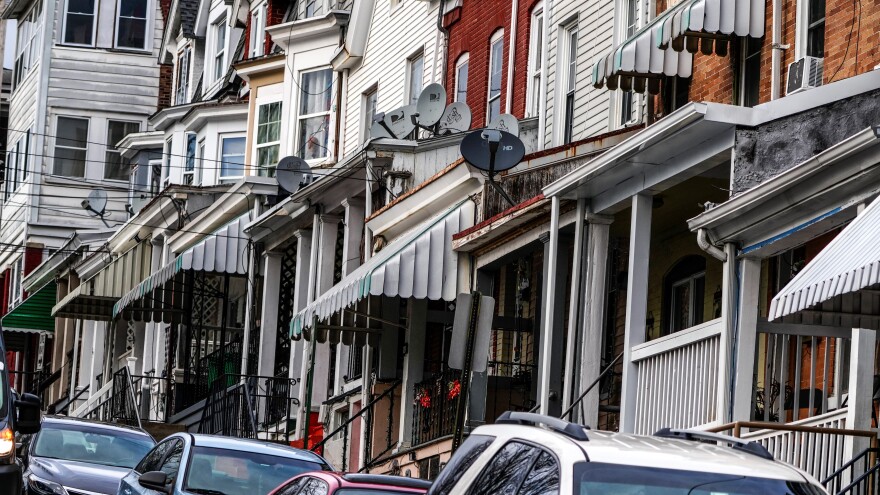ALLENTOWN, Pa. — City officials brainstormed Wednesday about a slew of options that could ease a housing crisis in Allentown and beyond.
First-time homebuyer programs, workforce housing and zoning changes to encourage denser development were among the many long-term initiatives mooted Wednesday.
City Council’s Community and Economic Development Committee met with Vicky Kistler and Mark Hartney, who lead the department of the same name.
The housing crisis is "a lot. If you think about it too long, it’s an overwhelming lot. But I think it can be done, if we attack it systematically."Vicky Kistler, community and economic development director
The plethora of ideas reflects that any attempt by the city to address housing issues must be “multipronged,” Kistler said.
Many “key factors” and programs must “be simultaneously in place if we are really going to try to stabilize housing” in Allentown and across the region, she told committee members.
“It’s a lot," Kistler said. "If you think about it too long, it’s an overwhelming lot. But I think it can be done, if we attack it systematically."
Hartney said increasing residents’ access to good-paying jobs in the city is another major part of the puzzle — and the focus of Allentown Works, a new program funded by a $20 million federal Recompete grant.
An online data dashboard produced by Lehigh Valley Planning Commission shows Allentown has about 1,900 fewer units than its residents require.
That shortage stands at more than 9,000 units across the Lehigh Valley.
Deed-transfer tax to rise?
Council soon could establish an affordable housing fund by increasing the deed-transfer tax rate half a percentage point.
Allentown’s home-rule charter, adopted in 1996, capped that rate at 2%; the city and school district each get 0.5% of a property’s value when it is sold, while the state keeps 1%.
Raising Allentown’s deed-transfer tax from 2% to 2.5% — and increasing the city’s take to 1% — could generate more than $2 million annually, Councilman Santo Napoli said Wednesday.
City voters removed the 2% cap via referendum last year, but that vote did not automatically trigger an increase.
Pittsburgh and Reading have the highest deed-transfer tax rates in Pennsylvania at 5%.
Napoli wants council to raise the deed-transfer tax during the upcoming budget process and use additional revenues generated from property sales to fund housing initiatives.


